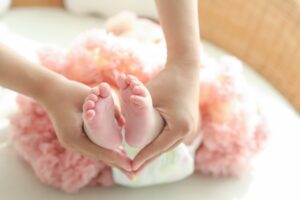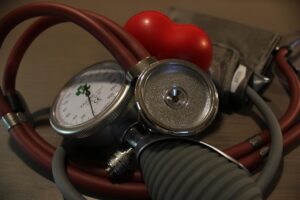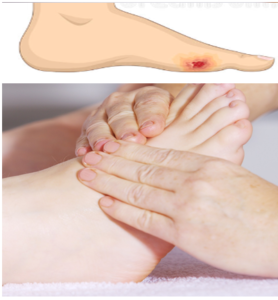Most of us think that Human Papilloma Virus(HPV) only causes cervical cancer in women. And since boys do not have a cervix – for obvious reasons – they should not receive the HPV vaccine.
The truth is HPV, a sexually transmitted infection, can lead to various cancers in both men and women.
According to the Centers for Disease Control and Prevention (CDC), approximately 14 million people get infected with HPV each year.
Additionally, about 9,300 men and 17,600 women suffer from cancers that are directly linked to HPV.
HPV vaccine is the most effective public health strategy in preventing HPV infection and related cancers in both boys and girls, especially when administered before they become sexually active.
Which Cancers are Caused by HPV?
HPV is the leading cause of anogenital cancer globally.
In females, HPV causes:
- Cervical cancer – the leading cause of cancer-related deaths in women.
- Vulvular cancer
- Vaginal cancer
- Cancer of the mouth and throat
- Cancer of the anus
- Genital warts
In men, HPV causes:
- Mouth and throat cancers
- Cancer of the penis
- Cancer of the anus
- Genital warts
Why Should Boys or Young Men Receive HPV Vaccine?
While HPV is the leading cause of cervical cancer in women, it does cause a variety of cancers in men, too.
According to data released at the 2021 American Society for Clinical Oncology Annual Meeting, HPV led to a five-fold increase in head and neck cancers in young men from 2001 to 2017.
More than 90% of HPV-associated cancers in men can be prevented by getting the HPV vaccine. The vaccine protects against head and neck, and anal cancers in both men and women.
HPV vaccine also offers protection against cervical cancer, valvular cancer as well as vaginal cancers in women.
Which HPV Vaccine is Recommended for Boys
The recommended HPV vaccine for boys is called Gardasil.
This vaccine has been shown to offer protection against certain types of HPV that can cause a variety of cancers in men, such as cancer of the anus, penis, mouth, and throat.
Who Should Get HPV Vaccine
Both boys and girls are legible to receive the HPV vaccine. The vaccine is most effective when given to boys and girls before they are exposed to the virus through sexual activity.
Vaccinated boys and girls get long-lasting protection against HPV for at least 10 years without the vaccine becoming less effective.
HPV Vaccine Schedule for Both Boys and Girls
There are two recommended dose schedules for HPV vaccination – 2-dose and 3-dose schedules.
2-dose HPV vaccination schedule
Recommended for children aged between 9 and 14 years, except for patients with a condition that weakens their immunity.

2 dose vaccination schedule is routinely given to children aged between age 11 – 12 years but can be started at age 9.
In the 2-dose HPV vaccination schedule, the second dose should be given 6 to 12 months after the first dose.
The recommended minimum interval is 5 months. Therefore, if the second dose is given after a shorter interval, a third dose should be administered at least 5 months after the first dose and 12 weeks after the second dose.
Once a third dose is given, no further vaccine dose should be administered since there is no maximum interval.
3-dose HPV vaccination schedule
It is recommended for children who get the first dose of the HPV vaccine on or after their 15th birthday through age 26 years.
People with conditions that suppress their immunity are also recommended to receive 3 doses of the HPV vaccine. They include people with
- HIV infection
- Cancer
- Autoimmune disease
- Those taking immunosuppressant medication
- Transplantation
Children with conditions such as diabetes and asthma, which do not suppress immunity, are recommended to receive 2 dose HPV vaccine.
The 3-dose HPV vaccine is given at 0, 1-2, 6-month schedule.
Should Adults Aged 27 to 45 years be Vaccinated Against HPV?
While the HPV vaccine is most effective when given before a person is exposed to HPV – between ages 11 and 12 years, you may benefit from the HPV vaccine if you receive it after 26 years of age.
This is because every time you have a new sexual partner, you risk getting a different strain of HPV. For this reason, getting an HPV vaccine may prevent new HPV infections but will not treat an already existing type of HPV or disease.
Additionally, you may not benefit from the HPV vaccine if you are in a committed, mutually monogamous relationship.
HPV vaccine Site of Administration
The preferred site of administration of the HPV vaccine is an intramuscular injection in the deltoid region of the upper arm.
The vaccine can also be administered in the higher anterolateral area of the thigh.
The vaccine should not be given intravenously, subcutaneously, or intradermally.
Does the HPV Vaccine Affect Fertility?
HPV vaccine is not associated with fertility problems.
However, you may experience side effects such as
- Pain at the injection site
- Swelling at the injection site
- Dizziness
- Headache
- Fainting – be sure to lie or sit for about 15 minutes after a vaccination
- Nausea
Takeaway
Getting persistent high-risk HPV infection puts one at a higher risk of developing various HPV-associated cancers.
Treatment of cancers is excessively expensive than preventing them. Going through various cancer treatment processes such as chemotherapy, radiotherapy, and surgery can negatively affect your health.
Getting the HPV vaccine is one of the most effective primary preventive measures against HPV related cancers in both men and women.




